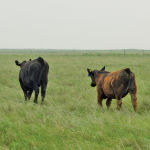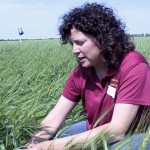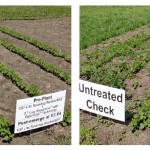
Tag Archives Agriculture

Cattle producers implement new grazing options
Using forage to finish cattle takes a strong focus on everything from cattle genetics to forage quality

Manitoba Crop Report and Crop Weather report: Issue 11
Conditions as of July 13, 2015

Canola growers urged to be smart: don’t use Clever (quinclorac) until importers set MRLs
Those who have sprayed canola with the herbicide need to inform buyers at delivery time

Zambian herd grows, despite ticks, poachers
While not without challenges, some farmers forced out of Zimbabwe have found a home ranching in Zambia

VIDEO: Crop recovery from lodging after severe weather
Crop Diagnostic School: Heavy weather can knock your crop flat. Question is, can it find a way to stand up again?

Manitoba Crop Report and Crop Weather report: Issue 10
Conditions as of July 6, 2015

Canada needs a different tact in international trade
Instead of defending supply management it needs to attack competitors’ subsidies

Tips on applying dicamba/glyphosate tank mix on Xtend soybeans
The implications of residual control, plus mitigating drift and sprayer cleanout

Editorial: Agri-resilience is farmers’ best defence for managing risk

Glenlea Research Station opens its fields to the public on July 8
Mark your calendar to come walk the fields, check out the plots and the composting at this year’s Glenlea field day


